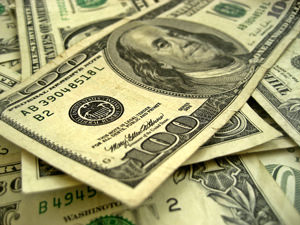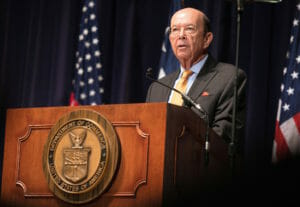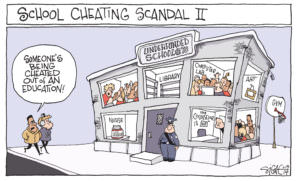Are Religious People More Likely to Lie?
A new study points to certain personal characteristics linked with a greater likelihood of lying for financial gain, and being religious is one of them. Whatever happened to "Thou shalt not bear false witness"?
A new study points to certain personal characteristics linked with a greater likelihood of lying for financial gain, and being religious is one of them. Whatever happened to “Thou shalt not bear false witness”? According to economist Jason Childs’ findings, when it comes to making a quick buck, religious teachings such as these may go out the window.
Childs conducted research to assess why 50 percent of people tend to lie when there’s money to be made, focusing his approach on personality traits that may have led some people to cheat others. The experiment involved 200 pairs of students at the University of Regina in Saskatchewan, Canada, who were given two disparate amounts of cash and the choice of whether to tell their peers how much they’d received (and risk losing the larger portion) or lie in order to keep the lion’s share.
Although religion was the most surprising factor Childs found to affect the students’ decision, it wasn’t the only one that increased the chances of deception. Pacific Standard via Salon reports:
Among those more likely to lie for financial gain were:
• Business majors. “It could be that these students are more prone to lying by nature or training,” Childs writes. “It could also be that individuals strongly motivated by financial returns, and therefore more likely to lie for a monetary payoff, are more likely to pursue an education in business.” (Previous research has found higher levels of academic cheating among business majors.)
• Students whose parents were divorced. This is in line with expectations, in that past research has found children of divorce are more likely to engage in anti-social behavior. Perhaps the belief they’ve been cheated out of a happy childhood may lead them to feel cheating is OK.
• Those for whom religion was more important to their lives. “This is surprising,” Childs writes, as most religions “promote honesty as a virtue. It may be that students for whom religion was important feel separate from other students at this largely secular university,” and thus feel less compelled to be honest with them.
There is still a 50/50 chance a person will choose to be honest, and one could very well decide to see the glass as half full. “But,” the article jokes, “if a friend with a business degree mentions he turned to religion to heal the wounds of his parents’ divorce … well, you may not want to make him your financial advisor.”
—Posted by Natasha Hakimi
Your support matters…Independent journalism is under threat and overshadowed by heavily funded mainstream media.
You can help level the playing field. Become a member.
Your tax-deductible contribution keeps us digging beneath the headlines to give you thought-provoking, investigative reporting and analysis that unearths what's really happening- without compromise.
Give today to support our courageous, independent journalists.





You need to be a supporter to comment.
There are currently no responses to this article.
Be the first to respond.